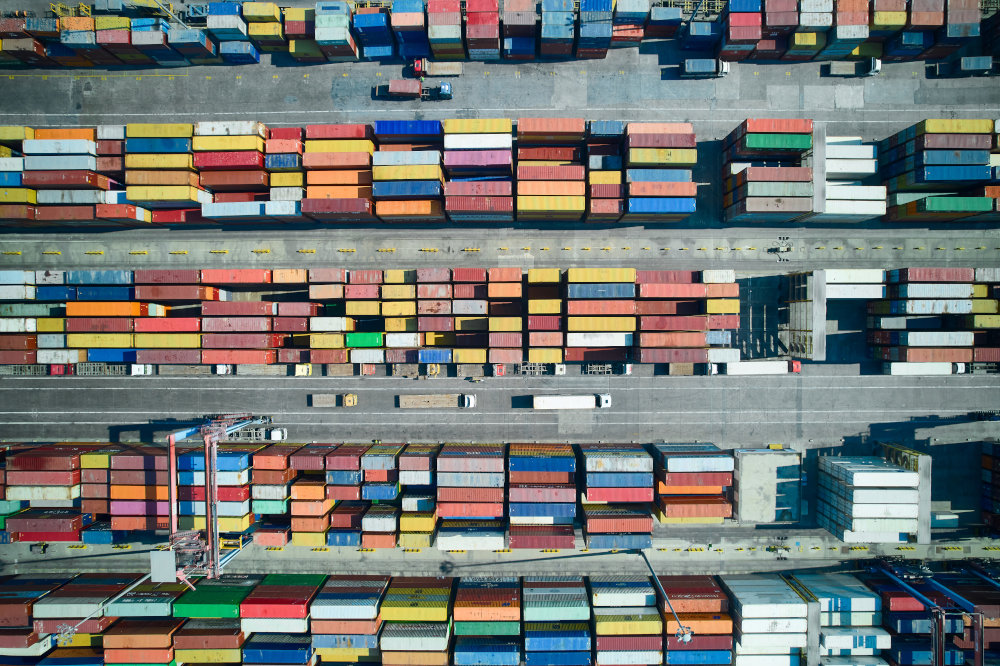Supply Chain Due Diligence: What You Need to Know
An increasing number of laws require companies to manage complex environmental, social and governance (ESG) risks. To comply, businesses need to understand how these issues relate to their supply chains – so they can address and prevent negative impacts, and drive sustainability standards. The activities and programmes to do this are know as “supply chain due diligence.
What is supply chain due diligence?
“Due diligence” refers to the steps that businesses take to identify, prevent and address risk. It is usually a system of policies and processes outlining a business’s aims, approach and due diligence tasks to carry out.
Companies have due diligence programmes to manage all kinds of risk, from financial and operational to sustainability-related concerns. This due diligence is often part of ensuring a company complies with relevant laws.
In relation to human rights and the environment, due diligence is the work a company does to understand the impact their business activities can have on people, communities, ecosystems, natural resources or the planet. Supply chain due diligence includes understanding the potential negative social or environmental impacts that result from suppliers’ operations – something that sustainability-related laws around the world increasingly require.

Why is this due diligence important?
Supply chain due diligence is a crucial part of responsible, sustainable business operations, and an obligation under many laws.
Conducting environmental and human rights due diligence in their supply chain helps a company to protect people, communities and the environment from negative impacts that their business operations could cause. It enables companies to drive improvements across sustainability areas. For example, in reducing Scope 3 carbon emissions, increasing wages paid to workers or improving safety standards.
For laws including the European Corporate Sustainability Due Diligence Directive (CSDDD/CS3D) and Corporate Sustainability Reporting Directive (CSRD), Germany’s Supply Chain Due Diligence Act, and the US Uyghur Forced Labor Prevention Act, supplier due diligence is an explicit requirement.
Businesses need to demonstrate that they have:
- Looked into their operations and built visibility of their entire supply chains. Some laws require that companies can confirm the origins of raw materials before goods enter a country. Countries may enforce this requirement by blocking imports if they have reason to believe items don’t comply with local law.
- Assessed which human rights or environmental risks are present, and how likely or severe the possible impacts are. This enables a business to prioritise where it focuses its resources.
- Taken action to address, reduce and prevent any negative sustainability impacts that could occur, or have already occurred.
- Publicly reported on these activities, demonstrating transparency on their environmental and human rights supply chain due diligence activities and the relevant sustainability risks.
When a law requires businesses of a certain size or industry to carry out this social or environmental due diligence, this helps to create a level playing field where similar companies and their competitors all dedicate time and resource to these activities.
When countries actively enforce these laws, this also helps to reassure investors, consumers, local communities and other stakeholders that companies are taking the appropriate steps to operate responsibly.
Business benefits of supply chain due diligence
Carrying out supply chain due diligence activities to manage ESG impact and drive improvement is an important part of many sustainability laws.
But the business benefits go beyond legal compliance. Due diligence activities can bring measurable return on investment (ROI), improved risk management, a more resilient business and a more robust supply chain that is better-equipped to navigate disruption.
Demonstrable ROI on due diligence activities
Analysing and utilising supplier environmental data is key to driving
Businesses can reap tangible benefits from carrying out and streamlining their supply chain due diligence activities. For example, a Forrester-conducted Total Economic Impact™ study on Sedex’s solutions (commissioned by Sedex) identified time and cost savings associated with due diligence tasks. For example, ESG risk assessment, supply chain mapping, and using a centralised data platform to leverage existing information on suppliers.
This included $304,000 of at-risk profit retained through a company meeting stakeholder demands and compliance requirements on supply chain sustainability.
Meeting investor demands
As investors’ knowledge and interest in ESG has increased, they are looking closer at ESG topics – including the levels of sustainability risks in supply chains. Companies can reassure existing and potential investors by demonstrating that they have a supply chain due diligence programme to identify and manage ESG risks. Robust ESG due diligence can also help companies secure good ESG ratings, which many investors use to inform their decisions.
Effective ESG risk management and a more resilient supply chain
Improve risk management in your supply chain with better visibility, data and insights. Make more informed decisions on ESG risks, building resilience, sourcing strategies and supply chain diversification. For example, by carrying out essential due diligence on new and prospective suppliers.
Protect brand reputation and drive company sustainability goals
Support your company’s existing sustainability goals by driving these in supply chains. These could include DEI (diversity, equity, and inclusion) initiatives, energy efficiency, biodiversity protection and more.
Having these commitments, making progress towards them and effectively addressing sustainability concerns can also enhance brand reputation among consumers and other stakeholders.
Key features of supply chain sustainability due diligence
Due diligence frameworks, for example the OECD’s Due Diligence Guidance for Responsible Business Conduct, help companies to respect labour rights and the environment. They define the steps a company should take to identify and act on the human rights or environmental risks in their operations and supply chains.
A complete environmental and human rights due diligence programme is unique to every company. The most significant ESG risks and actions to take depend on different commercial factors and sourcing approaches, and the resulting plan accounts for each business’s individuality. However, some core tasks and activities can be used as standard best practice.
To understand their potential impact on people and the environment, a company’s supply chain due diligence activities might include:
- Developing environmental and human rights policies to make sure a company complies with local laws or guidance frameworks, and upholds environmental and labour standards. For example, making sure young children aren’t used as workers.
- Mapping a supply chain to understand where a company’s suppliers, and the suppliers to their suppliers, exist and operate.
- Measuring and tracking environmental impact, for example water usage or carbon emissions. Companies might use guidance such as that from the Taskforces on Climate-related and Nature-related Financial Disclosures (TCFD and TNFD).
- Conducting supplier risk assessments and audits to understand how work is carried out in a business’s supply chain, the people working in it and the potential risks to workers, communities and the environment.
- Data analysis to inform actions and priorities. Most ESG frameworks, and some corporate sustainability laws, recommend that companies take a risk-based approach – identifying the most significant, widespread or severe issues to address first. It’s important that companies can show how they came to those decisions, e.g. what data sources and assessment tools they use.
Enhance your supply chain due diligence with Sedex
Sedex provides a comprehensive suite of tools and services designed to empower your company’s ESG supply chain due diligence efforts.
Our solutions help companies understand, prioritise and manage supply chain sustainability risks, enabling legal compliance and driving sustainable procurement practices.
- Sedex Platform: Improve visibility and actionable insights with your supply chain data in one place. Capture, store, analyse and report on data from global to individual site level.
- Risk assessment: Identify the highest social, ethical and environmental risks in your supply chain. Start with a global, high-level assessment, then get bespoke risk scores for suppliers and sites as their data becomes available in the Platform.
- SMETA Audit: Understand on-the-ground practices, processes, conditions and workers with our globally recognised audit – for in-person, site-level assessment.
- Sedex Consulting: Get bespoke support on complying with sustainability laws, responsible sourcing and supply chain due diligence programmes. Our experts can help to identify priority compliance areas and develop tailored strategies for meeting specific legal requirements.





